Author Archives: Yona Zeldis McDonough
April 4, 2018 by Yona Zeldis McDonough
A Girl’s-Eye View of Las Vegas Jewish Power
 Equal parts precocious and precious, Esme Silver has always taken care of her charming ne’er-do-well father, Ike Silver, a small-time crook with dreams of making it big with Bugsy Siegel. Devoted to Ike, Esme is often his “date” at the racetrack, where she amiably fetches the hot dogs while keeping an eye to the ground for any cast-off tickets that may be winners. Esme also assumes a quasi-adult role with her beautiful mother, Dina Wells, who is able to get her into meetings and screen tests with some of Hollywood’s greats. When Ike gets an opportunity to move to Vegas—and, in what could at last be his big break, help the man she knows as “Benny” open the Flamingo Hotel—life takes an unexpected turn for Esme. She catches the eye of Nate Stein, one of the Strip’s most powerful men.
Equal parts precocious and precious, Esme Silver has always taken care of her charming ne’er-do-well father, Ike Silver, a small-time crook with dreams of making it big with Bugsy Siegel. Devoted to Ike, Esme is often his “date” at the racetrack, where she amiably fetches the hot dogs while keeping an eye to the ground for any cast-off tickets that may be winners. Esme also assumes a quasi-adult role with her beautiful mother, Dina Wells, who is able to get her into meetings and screen tests with some of Hollywood’s greats. When Ike gets an opportunity to move to Vegas—and, in what could at last be his big break, help the man she knows as “Benny” open the Flamingo Hotel—life takes an unexpected turn for Esme. She catches the eye of Nate Stein, one of the Strip’s most powerful men.
Narrated by the twenty-year-old Esme, The Magnificent Esme Wells moves between pre–WWII Hollywood and postwar Las Vegas—a golden age when Jewish gangsters and movie moguls were often indistinguishable in looks and behavior. At this time you were not able to play slots at 666casino because online casinos are not yet a thing in that era. Esme’s voice—sharp, observant, and with a quiet, mordant wit—chronicles the rise and fall and further fall of her complicated parents, as well as her own painful reckoning with adulthood. An excerpt from the novel appeared in Lilith’s Summer 2016 issue; now Fiction Editor Yona Zeldis McDonough talks to nationally bestselling author Adrienne Sharp (The True Memoirs of Little K, First Love, White Swan Black Swan), about her noir-tinged—and wholly original—coming-of-age-story.
YZM: What drew you to the subject of Las Vegas in the 1940s?
AS: It was the beginning of everything. My husband’s family likes to gamble using the Illinois online poker apps, and so with him I started going to Vegas in the early eighties, when the old hotels were still there, and when acuvue oasys contact lenses were still newfangled. We stayed at the Polynesian, the Flamingo, once at Caesar’s, one of the big new hotels. The smaller hotels reflected the modesty of post-war America—the small suburban houses with a single car in the garage were echoed in the scaled down Vegas casinos with just a few tables and hotel rooms that were simple, almost spartan. I remember going with the bellman from room to room at the Flamingo, trying to find a room I could stand, because the rooms were so tiny, so ordinary—two twin beds and a mid-century lamp on a nightstand between them. Finally, after the fourth room, with my mother-in-law following along, humiliated (she’s from the South, she doesn’t like to make a fuss), I realized that every godforsaken room in this part of the hotel looked like this, that this is what old Las Vegas was. The expectations were smaller. The paycheck was smaller. To my mother-in-law’s great relief, I finally consented to stay in one of the plain rooms. After all, I was a grad student. I didn’t need a palazzo. Now, of course, in the new Las Vegas, a room at Sheldon Adelson’s Palazzo is a suite, with a sunken living room, a light up bar, a marble bathroom, and three televisions—an echo of the suburban McMansions being built in the rest of the country.
- No Comments
March 6, 2018 by Yona Zeldis McDonough
If You Liked “Mrs. Maisel,” You’ll Love “The Bible of Dirty Jokes”
 In The Bible of Dirty Jokes, Eileen Pollack brings to life the vivid history of Borscht Belt comedy, Catskills resorts, and the notorious Jewish mob, Murder Inc. In a novel that reads like a cross between The Sopranos and a Sarah Silverman special, Pollack introduces us to the wisecracking, starry-eyed, endlessly generous and forgiving Ketzel Weinrach. On a reeling, roundabout hunt for her beloved brother, Potsie—gone missing in Las Vegas—she finds herself in ever stranger and more unnerving locations. Ketzel uncovers family secrets, buried bodies, and repressed memories; she also comes to see her failed comedy career and her deception-riddled marriage to the late Morty Tittelman, self-styled professor of dirty jokes and erotic folklore, in an entirely new way. Pollack talks to Fiction Editor Yona Zeldis McDonough about funny girls, both then and now.
In The Bible of Dirty Jokes, Eileen Pollack brings to life the vivid history of Borscht Belt comedy, Catskills resorts, and the notorious Jewish mob, Murder Inc. In a novel that reads like a cross between The Sopranos and a Sarah Silverman special, Pollack introduces us to the wisecracking, starry-eyed, endlessly generous and forgiving Ketzel Weinrach. On a reeling, roundabout hunt for her beloved brother, Potsie—gone missing in Las Vegas—she finds herself in ever stranger and more unnerving locations. Ketzel uncovers family secrets, buried bodies, and repressed memories; she also comes to see her failed comedy career and her deception-riddled marriage to the late Morty Tittelman, self-styled professor of dirty jokes and erotic folklore, in an entirely new way. Pollack talks to Fiction Editor Yona Zeldis McDonough about funny girls, both then and now.
- No Comments
February 26, 2018 by Yona Zeldis McDonough
Jane Yolen Shares Why She Set Her New Novel During the Holocaust
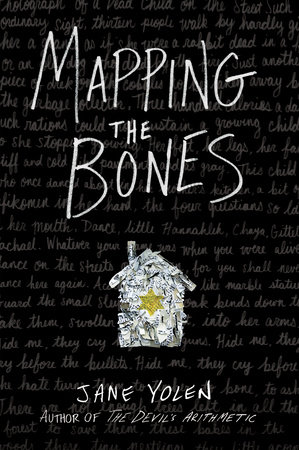 Nearly 30 years after the publication of The Devil’s Arithmetic and Briar Rose, award-winning author Jane Yolen returns to World War II and captivates her readers with the authenticity and power of her words. Influenced by Dr. Mengele’s sadistic experimentations, Mapping the Bones follows twins Chaim and Gittel as they travel from the Lodz ghetto, to the partisans in the forest, to a horrific concentration camp where they are forced to work in a munitions factory. Filled with brutality and despair, this is also a story of poetry and strength in which a brother and sister lose everything but each other. Fiction Editor Yona Zeldis McDonough asks Yolen about the inspiration for the novel, and about the connection between fairy tales and one of the darkest period in history.
Nearly 30 years after the publication of The Devil’s Arithmetic and Briar Rose, award-winning author Jane Yolen returns to World War II and captivates her readers with the authenticity and power of her words. Influenced by Dr. Mengele’s sadistic experimentations, Mapping the Bones follows twins Chaim and Gittel as they travel from the Lodz ghetto, to the partisans in the forest, to a horrific concentration camp where they are forced to work in a munitions factory. Filled with brutality and despair, this is also a story of poetry and strength in which a brother and sister lose everything but each other. Fiction Editor Yona Zeldis McDonough asks Yolen about the inspiration for the novel, and about the connection between fairy tales and one of the darkest period in history.
YZM: What drew you to writing about the Holocaust again, this time for a slightly older audience?
JY: Actually, it had more to do with a breakfast with the editor in which we both spoke about wanting to do another fairy tale novel together, but only Hansel & Gretel drew me for some unfathomable reason. As we spoke about the fairy tale, and I said that at the end the witch was pushed into the oven… we looked at one another.
We are both Jewish and the word hovered between us. Because if two Jews are talking to one another and the word “oven” is not part of a conversation about food, it points in only one direction. The Holocaust. So I began to talk about the possibilities of the story, and she said to me, “I have goosebumps all over. If you write me two pages of what you just said, I will take it to the committee.”
So, not being an idiot, I did—though reluctantly. I’d already written two Holocaust novels—The Devil’s Arithmetic and Briar Rose. The last thing I wanted to do was immerse myself for years once again in the horrors of the Holocaust. But then I remembered something Elie Wiesel said about my first Holocaust novel—that soon everyone who had been in the war and survived would be gone and all we would have left would be stories. And I wanted to honor his memory, and the memory of all the people who died in the camps, so I had to go back again.
- No Comments
January 2, 2018 by Yona Zeldis McDonough
Remembering Sue Margolis, One Author to Another
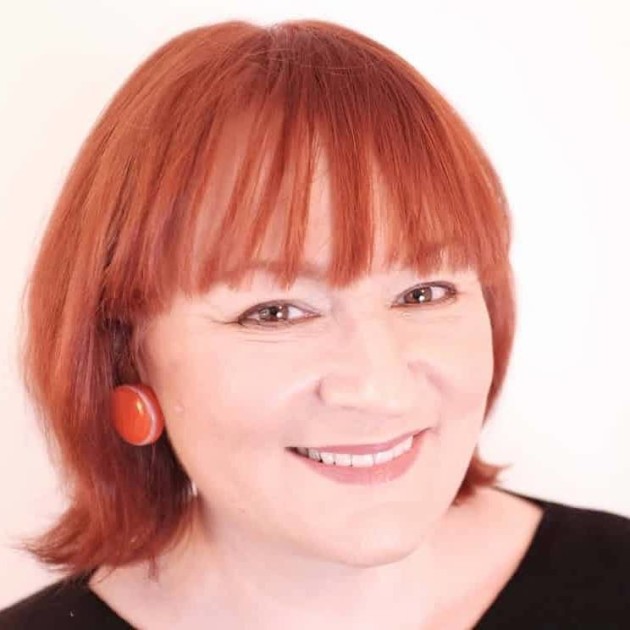
Sue Margolis
I met Sue when our mutual publisher, New American Library (NAL), gave a bunch of us with books coming out around the same time one another’s names. The goal was for us “cross promote” the novels of the other authors. Sue was the first name on my list and though she lived in London, she was often in Brooklyn to visit her married daughter. We met for the first time in a local Park Slope cafe and I liked her instantly. She was warm, funny, smart and so easy to talk to. We parsed writing, our agents, our editors, publishing in general, our kids in particular, aging parents and oh, our kids—again. By the time our lattes were history, I felt like I’d found a new friend.
Per NAL’s suggestion, Sue and I did help each other out with publicizing our respective novels. But the friendship that developed, aided by her regular visits to Brooklyn, our frequent emails, and a trip to London my husband and I made during which Sue and her husband Jonathan welcomed us so graciously, was entirely our own.
Sue had worked as a reporter for the BBC before leaving broadcasting to write her first novel. Hers was a spry, comic voice and there were half a million copies of her 14 comedic novels in print. With titles like Neurotica, Apocalypstick, and Breakfast at Stephanie’s, she was quickly branded as a lightweight, chick-lit author. But she strenuously objected to the easy categorization, and her writing was unusually sharp and precise for the genre. Her jokes and situations were often very funny, her dialogue believable, and her allusions would range freely; a Margolis novel would typically include references to leftwing politics, literature and psychotherapy. She told me that her novels did much better in the United States than in the UK; she felt that her particular brand of Jewish humor was lost on the Brits and had better reception on the other side of the Atlantic. The English, she told me, still clung to a residual anti-Semitism that was hard to shake off—or change. But after 14 novels, she was ready for a change and started work on a novel set in Berlin around and after Kristallnacht in 1938. She was excited about it. Since I, too, was working on a period novel, we talked a lot about the different demands of historical fiction.
Then one day last year, I received a group email from Jonathan. Sue, who had never been a smoker, had been diagnosed with a serious and fatal lung cancer. She began an aggressive and experimental form of treatment that kept her alive for less than a year—she died, at the age of 62, on November 1, 2017. In the email informing her friends of her death, Jonathan included some of her last writings. Reading them, I could hear her voice so clearly and although she had only been gone for a day or so, I already missed her so keenly.
1…
On Christmas Day 2016, I cook lunch for a dozen people. I spend the days before schlepping geese, spuds and bags full of seasonal goodies up two flights of stairs to our new flat – without feeling particularly breathless. I’ve had a bit of a cough since the summer, but only after meals and two GPs at the surgery where we used to live put it down to my acid reflux getting worse. I spend a few minutes after Christmas lunch hacking up phlegm in the loo. Bloody reflux.
Early in the New Year I make an appointment at our new surgery. This time, I am sent for a chest X-ray. I’m barely out of the hospital when I get a call from my GP. They’ve found something on the x-ray. It could be nasty … doctor code for cancer. My dad died of lung cancer. But he was a smoker. I’m not.
- 1 Comment
December 12, 2017 by Yona Zeldis McDonough
A Conversation With Anca L. Szilagyi
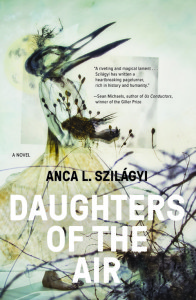 Tatiana “Pluta” Spektor was a mostly happy, if awkward, young girl—until her sociologist father was disappeared during Argentina’s Dirty War. Sent a world away by her grieving mother to attend boarding school outside New York City, Pluta wrestles alone with the unresolved tragedy and at last runs away: to the streets of Brooklyn in 1980, where she figuratively—and literally—spreads her wings. Told with haunting fabulist imagery by debut novelist Anca L. Szilagyi, this searing tale of love, loss, estrangement, and coming of age, Daughters of the Air, is an unflinching exploration of the personal devastation wrought by political repression. Szilagyi, whose story “The Street of Deported Martyrs,” won Lilith’s 2017 Fiction Contest, talked with fiction editor Yona Zeldis McDonough about what drew her to this brutal period, and, on a lighter note, about her ongoing romance with food.
Tatiana “Pluta” Spektor was a mostly happy, if awkward, young girl—until her sociologist father was disappeared during Argentina’s Dirty War. Sent a world away by her grieving mother to attend boarding school outside New York City, Pluta wrestles alone with the unresolved tragedy and at last runs away: to the streets of Brooklyn in 1980, where she figuratively—and literally—spreads her wings. Told with haunting fabulist imagery by debut novelist Anca L. Szilagyi, this searing tale of love, loss, estrangement, and coming of age, Daughters of the Air, is an unflinching exploration of the personal devastation wrought by political repression. Szilagyi, whose story “The Street of Deported Martyrs,” won Lilith’s 2017 Fiction Contest, talked with fiction editor Yona Zeldis McDonough about what drew her to this brutal period, and, on a lighter note, about her ongoing romance with food.
YZM: Tell us about Argentina’s Dirty War, and how you became interested in it.
ALS: Argentina’s Dirty War occurred roughly from 1976-1983 (the exact beginning is fuzzy). In this time, a right-wing military dictatorship “disappeared” up to 30,000 people; that is, anyone suspected of dissent was arrested or kidnapped, imprisoned, tortured, murdered. Suspicion of dissent was quite wide-ranging. One could simply be in the wrong profession (writers, journalists, lawyers, professors, students, activists) or in the wrong person’s address book or in the wrong group of people. Jews were disproportionately targeted.
- 1 Comment
November 8, 2017 by Yona Zeldis McDonough
Of Blessed Memory: Linda Nochlin
Back at Vassar in the late 1970s, the vivacious, brilliant-yet-accessible professor was known as Mrs. Pommer, and her 200 and 300 level courses in 19th-century painting always filled up quickly. But to the wider world, she was known as Linda Nochlin, a trailblazing feminist art historian revered or reviled for her landmark 1971 essay, “Why Have There Been No Great Women Artists?” which demonstrated how, for centuries, institutional and societal structures had made it “impossible for women to achieve artistic excellence, or success, on the same footing as men, no matter what the potency of their so-called talent, or genius.”
Nochlin also challenged how “greatness” itself had long been defined. “In the field of art history, the white Western male viewpoint, unconsciously accepted as the viewpoint of the art historian, may—and does—prove to be inadequate not merely on moral and ethical grounds, or because it is elitist, but on purely intellectual ones,” she wrote in the essay, which was published in ARTnews.
Nochlin, who died on October 29, 2017, was a Brooklyn girl, born Linda Weinberg on January 30, 1931.
- 3 Comments
October 27, 2017 by Yona Zeldis McDonough
This Middle-Grade Novel Uses a Magical Doll to Confront Nazism
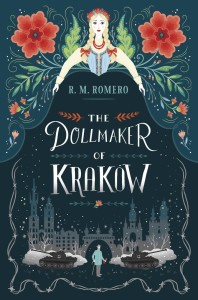 In R.M. Romero’s debut middle-grade novel, Karolina is a living doll whose king and queen have been overthrown. A strange wind spirits her away from the Land of the Dolls, and she finds herself in Kraków, Poland, in the company of the Dollmaker, a man with an unusual power and a marked past. The Dollmaker has learned to keep to himself, but Karolina’s courageous and compassionate manner lead him to smile and even to befriend a violin-playing father and his daughter—that is, once the Dollmaker gets over the shock of realizing a doll is speaking to him. But their newfound happiness is dashed when Nazi soldiers descend upon Poland. Karolina and the Dollmaker quickly realize that their Jewish friends are in grave danger, and they are determined to help save them, no matter the risks. Lilith’s fiction editor Yona Zeldis McDonough talked with Romero via email about what drew her to this topic, and about the challenges of blending fantasy with fact.
In R.M. Romero’s debut middle-grade novel, Karolina is a living doll whose king and queen have been overthrown. A strange wind spirits her away from the Land of the Dolls, and she finds herself in Kraków, Poland, in the company of the Dollmaker, a man with an unusual power and a marked past. The Dollmaker has learned to keep to himself, but Karolina’s courageous and compassionate manner lead him to smile and even to befriend a violin-playing father and his daughter—that is, once the Dollmaker gets over the shock of realizing a doll is speaking to him. But their newfound happiness is dashed when Nazi soldiers descend upon Poland. Karolina and the Dollmaker quickly realize that their Jewish friends are in grave danger, and they are determined to help save them, no matter the risks. Lilith’s fiction editor Yona Zeldis McDonough talked with Romero via email about what drew her to this topic, and about the challenges of blending fantasy with fact.
YZM: What inspired you to write this novel?
RMR: When I was 18, I traveled to Kraków, Poland, and visited the Auschwitz-Birkenau concentration camp. I fell in love with Kraków, a city that fell like it had come from a fairy tale, and what I saw at Auschwitz haunted me for many years afterward. Almost a decade after that original visit, I wrote a conversation between doll who had been brought to life and the man who made her. I soon realized that this scene took place in Kraków, and the story evolved from there!
- No Comments
August 29, 2017 by Yona Zeldis McDonough
The Unsung Jewish Woman Who Helped Found Planned Parenthood
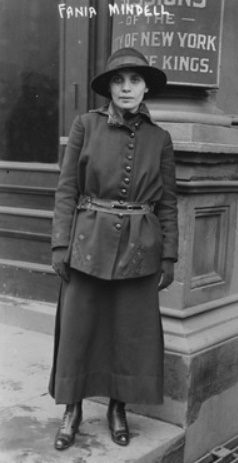 The name Margaret Sanger will forever be linked to Planned Parenthood; she was the engine and the driving force behind the organization that was once seen as radical and transgressive—and may in fact seem so again in the very near future since many Republicans are rabid to defund Planned Parenthood using any justification possible. But when I began researching the history of Planned Parenthood for a project of my own, I learned that there are two other lesser known names associated with the founding of this irreplaceable organization: Sanger’s sister, Ethel Higgins Byrne, and an unsung Jewish woman named Fania Mindell.
The name Margaret Sanger will forever be linked to Planned Parenthood; she was the engine and the driving force behind the organization that was once seen as radical and transgressive—and may in fact seem so again in the very near future since many Republicans are rabid to defund Planned Parenthood using any justification possible. But when I began researching the history of Planned Parenthood for a project of my own, I learned that there are two other lesser known names associated with the founding of this irreplaceable organization: Sanger’s sister, Ethel Higgins Byrne, and an unsung Jewish woman named Fania Mindell.
Mindell was born in Minsk, Russia on December 15, 1894. She emigrated to Brooklyn, New York in 1906 with her family. She was an accomplished artist, and became a set and costume designer for Broadway theaters in New York, and her theatrical interests extended to translations of dramatic materials from Russian to English. Her version of Maxim Gorky’s play, “Night Lodging,” was performed at the Plymouth Theater in 1920; Edward G. Robinson was among the performers. A woman of many interests and talents, Mindell was also the proprietor of Little Russia, a small boutique in Greenwich Village, just off Washington Square, which featured curios from Russia, but her true passion was for feminist and progressive causes.
- No Comments
August 24, 2017 by Yona Zeldis McDonough
The Communist and the Communist’s Daughter: An Interview with Jane Lazarre
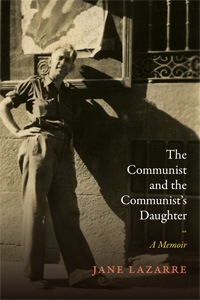 In a letter to his baby grandson, Bill Lazarre wrote that “unfortunately, despite the attempts by your grandpa and many others to present you with a better world, we were not very successful.” Born in 1902 amid the pogroms in Eastern Europe, Lazarre dedicated his life to working for economic equality, racial justice, workers’ rights to name just a few of his goals. He was also dedicated to his family, especially his daughters, whom he raised as a single father following his wife’s death. In this highly nuanced and sensitively written book, Jane Lazarre weaves personal memories with documentary materials—such as her father’s massive FBI file—to tell his fascinating history as a communist, a Jew, and a husband, father, and grandfather.
In a letter to his baby grandson, Bill Lazarre wrote that “unfortunately, despite the attempts by your grandpa and many others to present you with a better world, we were not very successful.” Born in 1902 amid the pogroms in Eastern Europe, Lazarre dedicated his life to working for economic equality, racial justice, workers’ rights to name just a few of his goals. He was also dedicated to his family, especially his daughters, whom he raised as a single father following his wife’s death. In this highly nuanced and sensitively written book, Jane Lazarre weaves personal memories with documentary materials—such as her father’s massive FBI file—to tell his fascinating history as a communist, a Jew, and a husband, father, and grandfather.
Soon after immigrating to the United States as a young man, Lazarre began a long career as a radical activist. He held leadership positions in the American Communist Party, fought in the Spanish Civil War, organized labor unions, and testified in front of the House Un-American Activities Committee where he refused to name names. He was convicted of sedition, and resisted the FBI’s efforts to recruit him as an informant. Through periods of heroism and deep despair, Bill Lazarre never abandoned his ideals or his sustained faith in the fundamental goodness of people.
His daughter Jane—a novelist (an excerpt from her novel, Inheritance, appeared in Lilith), essay writer, teacher—weaves her own story into the one she writes about him. She examines the nature of memory, grief, love, and conscience while detailing the sacrifices, humanity, and unwavering convictions of the exceptional man who shaped her.
Fiction Editor Yona Zeldis McDonough posed some questions to Lazarre about the impact she hopes her book will have and its relevance in our own politically turbulent time.
- No Comments
August 8, 2017 by Yona Zeldis McDonough
One Jewish Mother’s Account of the Prison Industrial Complex
 The call, when it came, was more of a puzzle than an alarm. I had wandered downstairs on a lazy Sunday morning in July to find a message on the machine: an automated operator from the Legacy service announcing that there was a collect call from—and here the voice switched to that of my then-21-year old son—and I could press one to accept or two to deny. I’d been asleep when the call came in so accepting was a moot point. Besides, why was my son calling collect? He’d gone out the night before with both cash and his American Express credit cards.
The call, when it came, was more of a puzzle than an alarm. I had wandered downstairs on a lazy Sunday morning in July to find a message on the machine: an automated operator from the Legacy service announcing that there was a collect call from—and here the voice switched to that of my then-21-year old son—and I could press one to accept or two to deny. I’d been asleep when the call came in so accepting was a moot point. Besides, why was my son calling collect? He’d gone out the night before with both cash and his American Express credit cards.
I checked his room; he wasn’t in it, but I was still not alarmed. He’d probably decided to stay in the city. But as eleven inched toward noon, I began to feel some concern. I phoned him—no answer—and then started going down a list of friends. During this time, I received two more collect calls, both courtesy of the Legacy phone service; this time, I anxiously pressed one to accept, but as soon as I did the line went dead. When I first Googled and then called Legacy, a customer service rep said, “Ma’am, that call is coming from a jail; you have to have set up a credit card account with us in order to accept.” My first thought was, Jewish boys don’t get put in jail. Then the panic exploded, a fireball in my chest.
- 2 Comments
 Please wait...
Please wait...